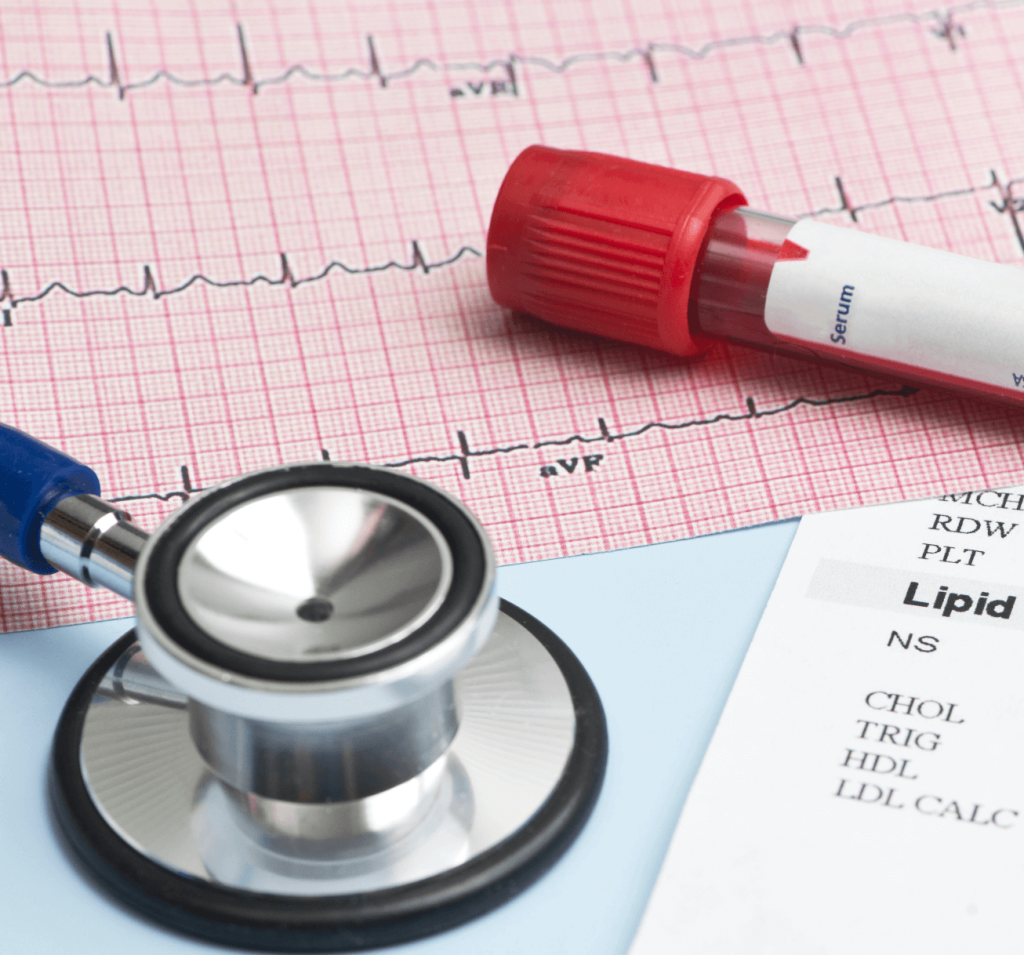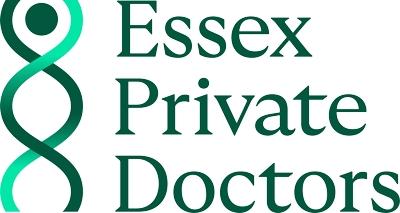Private Heart Health Check Essex
Heart Health Check
Heart Health Check
Is your heart quietly at risk?
You feel fine. You exercise. You eat well—most of the time. But here’s the reality: heart disease remains the number one cause of death in the UK, and many people don’t know they’re at risk until it’s too late.
Our new Heart Health Check at Essex Private Doctors is designed for people like you—those who want clarity, reassurance, and personalised advice to protect their heart health for the long run. If you’re over 40 or have a family history of heart problems, this screening could be one of the most important things you do for your future.
What is the Heart Health Check?
The Heart Health Check is a focused cardiovascular screening designed to uncover hidden risks before they become problems. Unlike a standard cholesterol test, we go deeper—looking at advanced markers of inflammation, inherited risk, and vascular damage. You’ll also receive a full heart-focused physical exam, ECG, and personalised prevention plan.
This is not a generic NHS-style health check. This is precision prevention, built around you.
Who is it for?
The Heart Check is ideal if you:
- Are aged 40 or over
- Have a family history of heart disease, stroke, or high cholesterol
- Have high blood pressure, diabetes or prediabetes
- Have a sedentary lifestyle, carry excess weight, or experience chronic stress
- Are menopausal, especially if you had an early menopause or pre-eclampsia
- Are of South Asian or Afro-Caribbean background (which carries a higher risk)
Even if you feel well—you could still be carrying hidden risk. This check is about getting answers early, not waiting for symptoms.

ApoA1 and ApoB and Heart Disease Risk
If you’re worried about heart health, you’ve probably heard a lot about cholesterol. Maybe you’ve had your LDL (“bad cholesterol”) and HDL (“good cholesterol”) tested. But there’s a new layer of precision that’s changing how we understand cardiovascular risk—thanks to two vital proteins: Apolipoprotein A1 (ApoA1) and Apolipoprotein B (ApoB).
We’re now offering testing for these advanced markers as part of our new Heart Health Check service at Essex Private Doctors.
Here’s why this matters so much more than just ticking the “cholesterol” box:
Apolipoproteins are the proteins that carry cholesterol around in your bloodstream. They’re like delivery vans —except they also determine where cholesterol ends up, and whether that’s a good or bad thing.
- ApoA1 is the major protein component of HDL (the “good” cholesterol). It helps sweep excess cholesterol out of your arteries and back to the liver for disposal.
- ApoB is found on LDL, VLDL, and other lipoproteins that can cause plaque buildup in your arteries. In short, every ApoB-carrying particle is potentially atherogenic (artery-clogging).
So, instead of just measuring how much cholesterol you’ve got floating around, we now measure the number of particles doing the damage.
Why Is ApoB So Important?
Every ApoB particle has the potential to sneak cholesterol into your artery walls—this is what eventually causes blockages, heart attacks, and strokes.
Traditional cholesterol tests give us a broad idea of your risk. But some people with “normal” LDL levels can still have high ApoB—and this means they’re quietly at risk without knowing it.
ApoB gives us a much clearer picture of how many damaging lipoproteins you’ve got in circulation. More ApoB = more risk.
And What About ApoA1?
Think of ApoA1 as your artery-cleaning crew. The higher your ApoA1, the better your body is at removing cholesterol from the system before it causes harm. Low levels of ApoA1 have been linked to increased cardiovascular risk—even when total cholesterol seems OK.


ApoB/ApoA1 Ratio
One of the most helpful tools we now have is the ApoB to ApoA1 ratio. This simple comparison tells us a lot about the balance of risk and protection in your body.
- A high ApoB/ApoA1 ratio suggests you’re carrying more harmful particles than protective ones.
- A lower ratio suggests your risk of heart disease is lower—even if your cholesterol numbers are borderline.
It’s a far more nuanced way to assess your heart health than the blunt tools we’ve traditionally relied on.
Statins, Risk Scores and the Future of Prevention
If you’re wondering whether you should be taking a statin—or you’re not sure whether your current lifestyle is keeping your heart safe—testing ApoA1 and ApoB can give us that extra layer of clarity.
These markers, alongside tools like the Q-Risk3 score (which looks at your age, blood pressure, cholesterol, weight, ethnicity and family history), help us personalise decisions about starting treatment like statins. They can also motivate meaningful changes in diet and activity that actually move the needle on risk.
This is especially helpful if you’re in that tricky “borderline” zone—not obviously high-risk, but not feeling totally reassured either.
What’s included in The Heart Health Check?


Can I do this if I’m on a statin?
Yes—and you should. This check can tell us if your current dose is enough, or if we need to push your cholesterol lower to better reduce your risk.
Prevention starts here
If you want to take control of your future health, now is the time. The Heart Check is your chance to spot warning signs early, before symptoms appear, and make changes that can truly transform your long-term health.
You’re not just a number on a cholesterol chart—you’re a person with a unique risk profile. Let’s find it, understand it, and do something about it.

